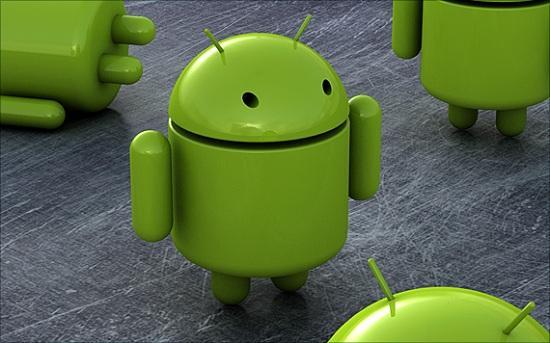
Is Android relevant anymore? In the light of the other major mobile platforms that exist in today’s market, does Google’s mobile operating system stand a chance at sustaining its current and proven popularity? And after the launch of Apple’s iOS 5, where Android features were more or less shamelessly integrated into the shiny mobile OS, will the masses still want to use Android? The truth is -- it’s a loaded question. There are several different ways to look at it, and there are varying levels of intensity that can be administered to those views, all of which come to one conclusion or another. Yes, Android’s prowess in the market isn’t going anywhere any time soon. Or no, Android’s days are coming to an end. Whichever side of the line you stand on, here’s the answer put simply: Yes, Android is still relevant, and the little green ‘droid is still very important for the mobile market.
Very recently, we kicked around another loaded question: has Android lost an ace? Meaning, in today’s mobile market, has Android’s dominance over certain features been stripped away from Google’s mobile OS, and freely distributed to other major platforms available for purchase to the general consumer. Multitasking isn’t just a one-sided conversation anymore. In fact, even widgets aren’t a one-sided conversation anymore, even if Android’s dominance in this area is still obvious.
There’s no denying that Android’s popularity has grown exponentially since its debut a few years ago, and the truth is, mobile manufacturers are still more confident in this OS than they are in others. We’re seeing new Android devices hit the market, most of which are packing some of the hottest features in hardware that we’ve ever seen, faster than ever and there’s no indication that it’s going to slow down any time soon.
We can sit here and talk about how Apple has “borrowed” features of Android (and other mobile operating systems), and we can talk about how that may change the general perception for some thinking about getting an Android phone versus an iPhone. Some people are going to choose the iPhone and some people are going to choose an Android-powered device. And this is a relevant comparison, because this is exactly why Android is still absolutely, positively still needed in the mobile market; because it’s our classic “good guy vs. bad guy” argument. (And you can choose who the good/bad guy is. I’m not touching that with a ten-foot pole.)
Android is still essential for the mobile market, because Android is the lighthouse for the “open” world. When we look at Research In Motion, Microsoft, HP, and especially Apple, we don’t think of the “openness” of their mobile platforms. And when we look at Apple especially, we think about that walled garden. We need an opposite force in the mobile market to promote openness, and Google’s Android is the instrument to do that. They have been since the debut of the little green ‘droid, and even if some manufacturers want to try and stop the modding community from getting into their phones (hey, some companies don’t mind at all), Android is still the shining beacon for the open community, and that’s something that we need more than ever right now.
Apple’s popularity is still strong, and the other mobile manufacturers and minds behind those other mobile operating systems still see this. But Android’s immense and growing popularity is something that they can’t ignore, either. So when we watch these other companies consider their strategies for the mobile market, knowing that some, if not most of them are choosing the more “open” path has everything –everything—to do with Android, and all of us as a collective whole cannot thank that Android enough. I’m not saying that Android is the only voice or presence promoting the open market, but Android is the reason it’s so popular today, and Android is the resounding voice against Apple’s walled garden, which many people are not a fan of. (And many people are a fan of, on the contrary.)
The simple argument, and the one that provides less fruit for consumption during a conversation, is that “choice is good.” Yes, choice is great, but there has to be more to it than that. And Android’s position in the mobile market is a tough one, because Android stands for something. Google’s mobile operating system isn’t just a mobile OS – it’s a voice for those who want to have the freedom to use their phone as they see fit, and that’s a voice that can’t ever go silent.
In any event, let me know why in the comments below you still think Android is a relevant mobile OS in today’s market. Or, if you don’t think it is, let me know why. I’m curious to see how the voices of our readers come down on this.